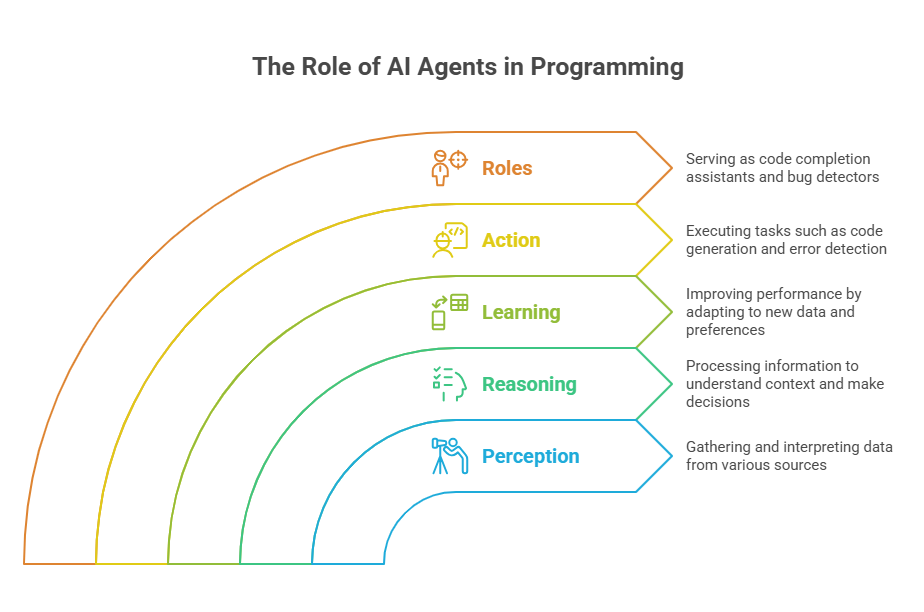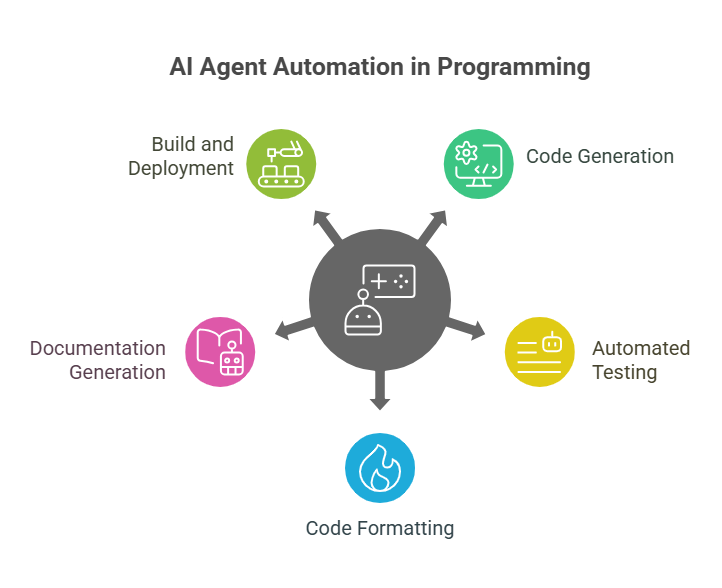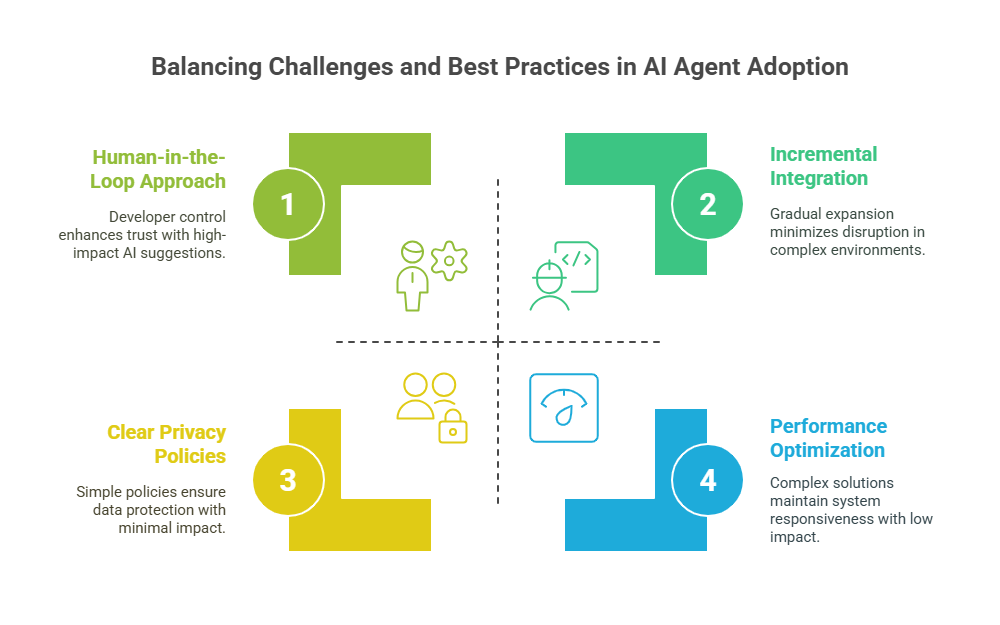Introduction: The Need for Workflow Optimization in Programming
In today’s fast-paced software development landscape, programmers face increasing pressure to deliver high-quality code quickly and efficiently. The complexity of modern applications, rapid technology changes, and growing user expectations demand that developers optimize their workflows to stay competitive and productive.
Workflow optimization refers to the process of improving the sequence of tasks and activities that programmers perform daily, aiming to reduce wasted time, minimize errors, and enhance overall efficiency. Traditional programming workflows often involve repetitive tasks such as code formatting, testing, debugging, and documentation, which can consume significant time and mental energy.
Moreover, developers frequently switch between different tools, environments, and communication channels, leading to context switching that disrupts focus and slows progress. These challenges highlight the critical need for solutions that streamline workflows and support developers in managing their complex responsibilities.
AI agents have emerged as powerful tools to address these challenges by automating routine tasks, providing intelligent assistance, and enabling smoother collaboration. By integrating AI agents into programming workflows, developers can offload mundane activities, receive real-time insights, and focus more on creative problem-solving and innovation.
This article series explores how AI agents can optimize programmer workflows, examining their capabilities, practical applications, and the benefits they bring to software development teams. Understanding the need for workflow optimization is the first step toward embracing AI-driven tools that enhance productivity and code quality in the modern programming environment.
Understanding AI Agents: Definitions and Capabilities
AI agents are software entities designed to perform tasks autonomously or semi-autonomously by perceiving their environment, processing information, and taking actions to achieve specific goals. In the context of programming, AI agents act as intelligent assistants that support developers by automating routine activities, providing recommendations, and facilitating decision-making.
At their core, AI agents combine several key capabilities:
Perception: The ability to gather and interpret data from various sources such as codebases, development environments, user inputs, and external APIs.
Reasoning: Processing the collected information to understand context, detect patterns, and make informed decisions.
Learning: Improving performance over time by adapting to new data, developer preferences, and evolving project requirements through machine learning techniques.
Action: Executing tasks such as code generation, error detection, refactoring suggestions, or communication with other tools and team members.
AI agents can range from simple rule-based bots that automate repetitive tasks to advanced systems leveraging natural language processing, reinforcement learning, and multi-agent collaboration.
In programming workflows, AI agents serve multiple roles, including code completion assistants, automated testers, bug detectors, documentation generators, and project management helpers. Their integration into development environments enables seamless interaction, allowing developers to benefit from AI support without disrupting their existing processes.
Understanding these fundamental concepts and capabilities is essential for effectively leveraging AI agents to optimize programming workflows. As AI technologies continue to advance, the potential for agents to transform software development grows, making them indispensable tools for modern programmers.

Common Bottlenecks in Programmer Workflows
Programmers often encounter several bottlenecks that slow down their productivity and affect the quality of their work. Identifying these pain points is crucial for understanding where AI agents can provide the most value in optimizing workflows. Some of the most common bottlenecks include:
- Repetitive and Mundane Tasks
Many programming activities involve repetitive actions such as formatting code, writing boilerplate code, running tests, and updating documentation. These tasks consume time and mental energy that could be better spent on creative problem-solving.
- Debugging and Error Resolution
Finding and fixing bugs is often time-consuming and frustrating. Debugging requires deep understanding of the codebase and can involve trial-and-error, which delays development progress.
- Context Switching
Developers frequently switch between different tools, programming languages, and tasks. This constant shifting disrupts focus and reduces efficiency, as it takes time to regain concentration after each switch.
- Code Review and Collaboration Delays
Manual code reviews and coordination among team members can introduce bottlenecks, especially in larger teams or distributed environments. Waiting for feedback or clarifications slows down the development cycle.
- Managing Dependencies and Environment Setup
Setting up development environments, managing dependencies, and ensuring compatibility across systems can be complex and error-prone, leading to delays and inconsistencies.
- Keeping Up with Rapid Technological Changes
The fast pace of software development means programmers must continuously learn new tools, frameworks, and best practices, which can interrupt workflow and reduce productivity.
By recognizing these common bottlenecks, teams can better target areas where AI agents can automate routine tasks, assist in debugging, facilitate collaboration, and streamline environment management. Addressing these challenges is key to creating a more efficient and enjoyable programming workflow.
How AI Agents Automate Repetitive Tasks
One of the most significant ways AI agents optimize programmer workflows is by automating repetitive and time-consuming tasks. These tasks, while essential, often distract developers from more creative and complex problem-solving activities. AI agents help by taking over routine work, allowing programmers to focus on higher-value contributions.
Code Generation and Completion
AI-powered code completion tools can predict and suggest code snippets as developers type, reducing the amount of manual coding required. More advanced agents can generate entire functions or modules based on high-level descriptions, speeding up development and minimizing syntax errors.
Automated Testing
Writing and running tests is critical but repetitive. AI agents can automatically generate test cases, execute them, and analyze results. They can also identify edge cases and suggest improvements to test coverage, ensuring more robust software with less manual effort.
Code Formatting and Refactoring
Maintaining consistent code style and structure is important for readability and maintainability. AI agents can automatically format code according to predefined standards and suggest or perform refactoring to improve code quality without changing functionality.
Documentation Generation
Creating and updating documentation is often neglected due to its repetitive nature. AI agents can generate documentation from code comments, function signatures, and usage patterns, keeping documentation up-to-date with minimal developer input.
Build and Deployment Automation
AI agents can manage build processes, automate deployment pipelines, and monitor system health, reducing manual intervention and the risk of human error during these critical stages.
By automating these repetitive tasks, AI agents not only save time but also reduce errors and improve consistency across projects. This automation leads to smoother workflows, faster delivery, and higher-quality software products.

Enhancing Code Quality and Consistency with AI Agents
Maintaining high code quality and consistency is essential for the long-term success and maintainability of software projects. AI agents play a vital role in supporting developers to achieve these goals by providing intelligent assistance throughout the coding process.
Real-Time Code Analysis and Suggestions
AI agents continuously analyze code as it is written, detecting potential bugs, security vulnerabilities, and performance issues. They offer real-time suggestions to fix problems before they become costly to resolve, helping developers write cleaner and safer code from the start.
Enforcing Coding Standards
Consistency in coding style across a team improves readability and collaboration. AI agents can automatically enforce coding standards by flagging deviations and even correcting formatting issues, ensuring that the entire codebase adheres to agreed-upon guidelines.
Intelligent Refactoring Recommendations
Refactoring improves code structure without changing its behavior, but knowing when and how to refactor can be challenging. AI agents analyze code complexity and dependencies to recommend targeted refactoring opportunities that enhance maintainability and reduce technical debt.
Automated Code Reviews
AI agents can assist in the code review process by automatically checking for common mistakes, style violations, and potential logic errors. This support accelerates reviews, reduces human oversight, and allows reviewers to focus on higher-level design and architectural concerns.
Learning from Codebases
Advanced AI agents learn from existing codebases and developer behavior to provide context-aware suggestions tailored to the project’s specific patterns and conventions, further improving code quality and developer productivity.
By integrating AI agents into the development workflow, teams can achieve more consistent, reliable, and maintainable code, ultimately leading to better software products and more efficient collaboration.
AI Agents in Debugging and Error Detection
Debugging is a critical yet often time-consuming part of software development. AI agents can significantly enhance this process by automatically identifying, diagnosing, and sometimes even fixing errors in code, helping developers save time and reduce frustration.
Automated Bug Detection
AI agents analyze code to detect common bugs, security vulnerabilities, and logical errors. By leveraging machine learning models trained on vast code repositories, they can recognize patterns indicative of defects that might be missed by traditional static analysis tools.
Error Localization and Explanation
Beyond detecting bugs, AI agents help pinpoint the exact location and cause of errors. They provide explanations and suggest possible fixes, making it easier for developers to understand and resolve issues quickly.
Predictive Debugging
Some AI agents predict potential future errors based on code changes or historical bug data, allowing developers to proactively address problems before they manifest in production.
Integration with Debugging Tools
AI agents can integrate with IDEs and debugging environments to offer real-time assistance, such as highlighting suspicious code lines, suggesting breakpoints, or recommending test cases to isolate issues.
Example: Simple Python AI Agent for Detecting Potential Division by Zero
python
def detect_division_by_zero(code_lines):
warnings = []
for i, line in enumerate(code_lines, 1):
if '/' in line or '//' in line:
if '0' in line.split('/')[-1].strip():
warnings.append(f"Warning: Possible division by zero at line {i}: {line.strip()}")
return warnings
# Sample code lines to analyze
sample_code = [
"a = 10",
"b = 0",
"c = a / b", # Potential division by zero
"d = a // 2",
"e = a / 5"
]
warnings = detect_division_by_zero(sample_code)
for warning in warnings:
print(warning)This simple function scans lines of code to detect potential division by zero errors and warns the developer, illustrating how AI agents can assist in early error detection.
Integrating AI Agents into Development Environments
Integrating AI agents directly into development environments (IDEs) and toolchains is key to maximizing their impact on programmer productivity and workflow efficiency. Seamless integration ensures that AI assistance is available contextually and unobtrusively, helping developers without disrupting their natural coding flow.
Plugin and Extension Support
Most modern IDEs like Visual Studio Code, IntelliJ IDEA, and PyCharm support plugins or extensions. AI agents can be embedded as extensions that provide features such as code completion, error detection, and automated refactoring directly within the editor.
Context-Aware Assistance
AI agents integrated into development environments can analyze the current file, project structure, and even version control history to offer contextually relevant suggestions. This includes recommending code snippets, detecting potential bugs, or suggesting documentation updates.
Integration with Version Control Systems
By connecting AI agents with version control tools like Git, developers can receive automated code review comments, detect merge conflicts early, and get suggestions for resolving issues during pull requests.
Support for Multiple Languages and Frameworks
Effective AI agents support a wide range of programming languages and frameworks, adapting their assistance to the specific syntax and best practices of each environment.
Real-Time Feedback and Collaboration
Integrated AI agents can provide real-time feedback as developers write code, reducing the need for separate review cycles. They can also facilitate collaboration by summarizing changes, suggesting improvements, and even automating routine communication tasks.
Customizability and User Control
Developers should be able to customize AI agent behavior, such as enabling or disabling certain features, adjusting suggestion frequency, or training agents on proprietary codebases to improve relevance.
Collaboration and Communication: AI Agents as Team Facilitators
AI agents are increasingly playing a vital role in enhancing collaboration and communication within software development teams. By acting as intelligent facilitators, they help streamline workflows, reduce misunderstandings, and improve overall team productivity.
Automated Meeting Summaries and Action Items
AI agents can listen to or analyze meeting transcripts and automatically generate concise summaries, highlight key decisions, and extract action items. This ensures that all team members stay informed and aligned without spending extra time on note-taking.
Task Management and Prioritization
By integrating with project management tools, AI agents help track task progress, suggest task prioritization based on deadlines and dependencies, and remind team members of upcoming milestones, reducing the risk of missed deadlines.
Code Review Assistance
AI agents facilitate smoother code reviews by automatically flagging potential issues, suggesting improvements, and even mediating discussions by providing objective insights, which helps reduce conflicts and accelerates the review process.
Knowledge Sharing and Onboarding
New team members can benefit from AI agents that provide contextual documentation, answer common questions, and guide them through codebases and workflows, speeding up onboarding and reducing the burden on senior developers.
Communication Enhancement
AI agents can analyze communication patterns in chat platforms or emails to detect misunderstandings, suggest clarifications, or recommend more effective communication styles, fostering a healthier team dynamic.
Cross-Team Coordination
In larger organizations, AI agents help coordinate efforts across multiple teams by tracking dependencies, synchronizing schedules, and facilitating information flow, ensuring that projects progress smoothly.
Measuring Productivity Gains from AI Agent Adoption
Quantifying the impact of AI agents on developer productivity is essential for understanding their value and guiding further investment. Measuring productivity gains involves both qualitative and quantitative approaches to capture improvements in efficiency, code quality, and team dynamics.
Key Metrics to Track
Common metrics include reduction in development time, number of bugs detected and fixed early, frequency of code refactoring, and speed of code reviews. Tracking these over time helps assess how AI agents contribute to faster delivery and higher-quality software.
Developer Feedback and Satisfaction
Surveys and interviews provide insights into how developers perceive AI agents—whether they feel supported, if the agents reduce cognitive load, and how the tools affect their workflow and creativity.
Automated Usage Analytics
Monitoring how often and in what ways developers interact with AI agents (e.g., accepting suggestions, using automated refactoring) offers objective data on adoption and effectiveness.
Comparative Studies
Conducting controlled experiments or A/B testing with teams using AI agents versus those without can highlight productivity differences and identify best practices for agent integration.
Return on Investment (ROI)
Calculating ROI involves comparing the costs of implementing and maintaining AI agents against the measurable benefits, such as reduced bug-related downtime, faster feature releases, and improved developer retention.
Challenges in Measurement
Productivity is multifaceted and influenced by many factors, making it difficult to isolate the effect of AI agents. Combining multiple measurement methods and considering long-term impacts provides a more comprehensive view.
Challenges and Best Practices for Workflow Optimization
While AI agents offer significant potential to optimize programming workflows, their effective adoption comes with challenges that must be addressed to realize maximum benefits.
Challenges
Integration Complexity: Incorporating AI agents into existing development environments and toolchains can be technically complex and may require significant customization.
Trust and Reliability: Developers may be hesitant to rely on AI suggestions if agents produce incorrect or irrelevant recommendations, leading to mistrust.
Over-Automation Risks: Excessive automation can reduce developer engagement or lead to complacency, potentially overlooking critical issues.
Data Privacy and Security: AI agents often require access to codebases and project data, raising concerns about confidentiality and compliance.
Performance Overhead: Running AI agents, especially those with heavy models, can impact system performance and responsiveness.
Skill Gaps: Teams may lack the expertise to configure, train, and maintain AI agents effectively.
Best Practices
Incremental Integration: Start with small, well-defined AI agent features and gradually expand their role to minimize disruption.
Human-in-the-Loop Approach: Keep developers in control by allowing them to review and approve AI suggestions, fostering trust and collaboration.
Continuous Training and Feedback: Regularly update AI models with new data and developer feedback to improve accuracy and relevance.
Clear Privacy Policies: Establish and communicate strict data handling policies to protect sensitive information.
Performance Optimization: Use lightweight models or offload heavy computations to cloud services to maintain smooth development experiences.
Training and Support: Provide developers with training and documentation to maximize effective use of AI agents.

Case Studies: Real-World Applications of AI Agents in Programming Workflows
Examining real-world examples helps illustrate how AI agents transform programming workflows across different industries and project types. These case studies highlight practical benefits, challenges faced, and lessons learned.
Case Study 1: Automated Code Review in a Large Software Company
A multinational software firm integrated AI agents into their code review process. The agents automatically flagged common coding errors, style inconsistencies, and potential security vulnerabilities. This led to a 30% reduction in review time and improved code quality, while allowing human reviewers to focus on complex architectural decisions.
Case Study 2: AI-Powered Bug Detection in a FinTech Startup
A FinTech startup deployed AI agents that continuously analyzed code commits and runtime logs to detect anomalies and potential bugs early. The system reduced production incidents by 40%, enabling faster response times and increased customer satisfaction.
Case Study 3: Personalized Coding Assistant for Remote Teams
A distributed development team used AI agents integrated into their IDEs to provide personalized code suggestions and documentation lookup. This helped new team members onboard faster and reduced dependency on senior developers for routine questions, improving overall team productivity.
Case Study 4: AI Agents in DevOps Automation
An enterprise adopted AI agents to automate deployment pipelines, monitor system health, and predict failures. The agents coordinated with microservices to trigger rollbacks and alerts, reducing downtime by 25% and streamlining operations.
Lessons Learned
Successful AI agent adoption requires careful integration, ongoing training, and balancing automation with human oversight. Transparency in AI decision-making and addressing developer concerns are critical for acceptance.
AI Agents: Building intelligent applications with ease


